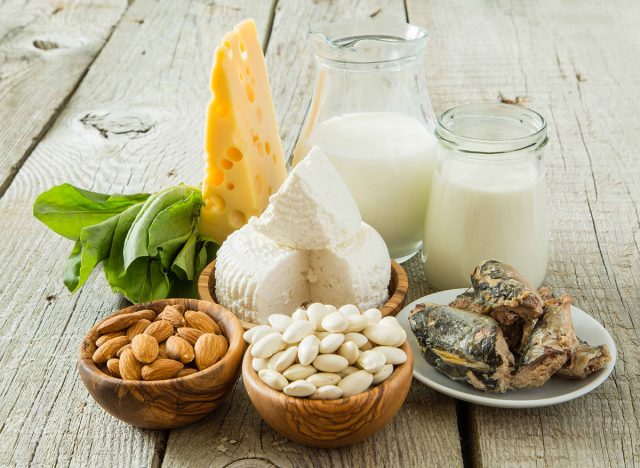The Most Crucial Eating Habit for Strong Bones

Your body is made up of over 200 bones, and your lifestyle plays a major role in the health of your skeletal system. The amount and type of activity you engage in, your weight, tobacco and alcohol use, and diet are all contributors to your bone health.
With so many non-modifiable risk factors associated with bone health like age, gender, genetics, and hormones, it is increasingly important to focus on the diet and lifestyle changes you can make to maximize your bone health.
When thinking about how you can make changes to your diet, you may want to consider which nutrients and vitamins you need more of. For example, calcium and vitamin D are major players in keeping bones healthy and limiting the risk of bone loss and osteoporosis.
That is why eating foods rich in calcium and vitamin D is the most crucial eating habit for stronger bones. Whether from natural food sources or supplements, it is essential to incorporate these nutrients into your daily meal plan.
If you're also looking for an easy health boost you can take first thing in the morning, here are the Best Supplements for Preventing Bone Loss.
Consuming calcium for bone health

Bone is a living tissue with the ability to grow and repair itself when damaged. While collagen is an important protein that provides the soft framework of bone, calcium is the nutrient responsible for the strength and hardness of your bones.
In fact, a diet lacking in calcium may reduce bone strength, leading to an increased risk for osteoporosis, which is a disease characterized by fragile bones.
Calcium is a mineral found in dairy-based foods like yogurt, milk, and cheese, as well as vegetables like kale and broccoli. One of the more unique sources of dietary calcium is fish in which you eat the bone, like canned sardines. One of the other major sources of calcium in the typical American diet is fortified calcium (which means the calcium is added), which is commonly found in products like juice and cereal, as well as soy milk and tofu. If a product is fortified, it will almost always say so on the front of the package.
Calcium is also frequently consumed through supplements. With animal, plant, fortified, and supplemental forms available, access to this nutrient is abundant. While this mineral is responsible for creating the strength in bones, vitamin D is required for your body to properly absorb the calcium consumed.
Why you also need vitamin D
According to Medical News Today, your body needs vitamin D in order to properly absorb calcium. One of the main ways vitamin D can help with this is by increasing your body's calcium absorption through your intestine. Vitamin D also helps regulate how much calcium is in your blood, and research suggests that without the proper amounts of this vitamin, your kidneys may expel too much calcium.
High amounts of vitamin D are not naturally found in as many dietary sources as calcium. Fatty fish like salmon and trout, as well as fish liver oils, are amongst the best sources of vitamin D. Egg yolks and cheese also contain some vitamin D, as well as mushrooms. However, plant-based sources of this vitamin are generally not absorbed as well as animal-based sources.
Similar to calcium, vitamin D is also commonly fortified in products like milk or juice. But because it can be harder to find higher amounts of vitamin D in your food or drinks, many people consume this vitamin through supplements. In fact, you will frequently find calcium supplements that also contain vitamin D because of the absorption benefit.
Because of the essential roles that calcium and vitamin D play in bone health, they should be consumed on a regular basis. If the food sources that naturally contain these nutrients do not appeal to you, or you are unable to eat them due to food sensitivities or allergies, supplement forms of each nutrient should be considered.








